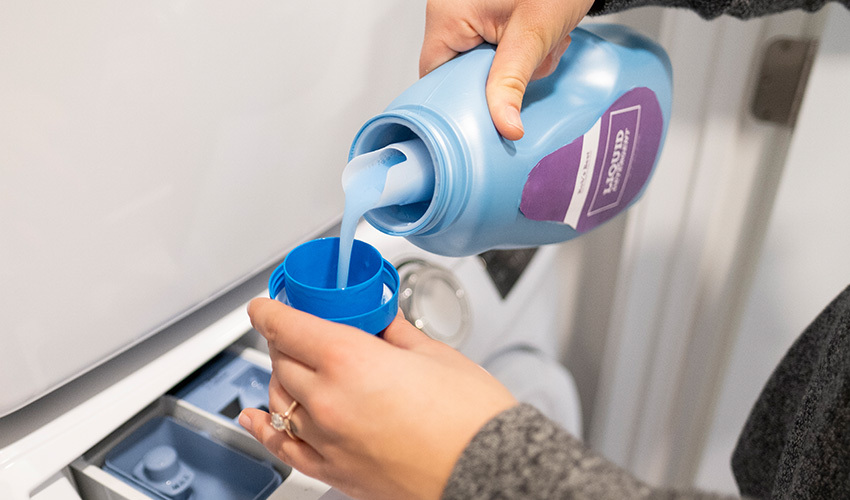Things To Know About Septic System Backups
Read More
Schedule Online
919-446-4099

Oct 12, 2023
Homeowners frequently have a long list of queries regarding what is safe and what is not when it comes to managing a septic system. Fabric softeners are one topic of frequent inquiry. Do they harm septic systems in any way?
In this blog post, our professionals from Septic Blue of Raleigh will explore the impact of fabric softeners on septic systems and discuss how they can affect crucial septic tank maintenance processes like pumping, repair, and installation.
When doing laundry, fabric softeners are frequently used to give clothes a softer feel, lessen static cling, and provide a pleasant scent. These products function by applying a thin layer of chemicals to your clothing's fibers, preventing them from stiffening and becoming scratchy.
Fabric softeners can affect our septic systems even if they make our clothing more comfortable to wear.
Let's take a quick look at septic systems' operation before getting into the fabric softener-septic system link. When municipal sewage systems are not available, septic systems—on-site wastewater treatment systems—are frequently employed in rural and suburban settings. They are made up of a drain field and a septic tank.
Fabric softeners' propensity to upset the microbiological equilibrium in the septic tank is the main worry when using them in septic systems. To effectively promote decomposition and break down solid waste, septic tanks rely on helpful microorganisms.
Due to their chemical composition, fabric softeners might kill these vital bacteria. The microorganisms that break down organic debris can be poisoned by some of the chemicals in fabric softeners. When these bacteria are damaged, the septic tank's capacity and effectiveness can be affected by the accumulation of sludge and scum.
Therefore, frequent use of fabric softeners may call for more frequent septic tank pumping. Septic tank pumping is the procedure used to empty the tank of built-up solids and scum in order to avoid blockages and maintain proper operation. This service is normally provided by a septic firm, and it can be expensive if it needs to be done more regularly because of the use of fabric softener.
The effects of fabric softeners on septic systems extend beyond already-existing systems and may also have an impact on septic tank installation and repair.
Are you in need of a septic company? Luckily, we at Septic Blue of Raleigh have dedicated workers ready at your service. Contact our representatives for more questions.